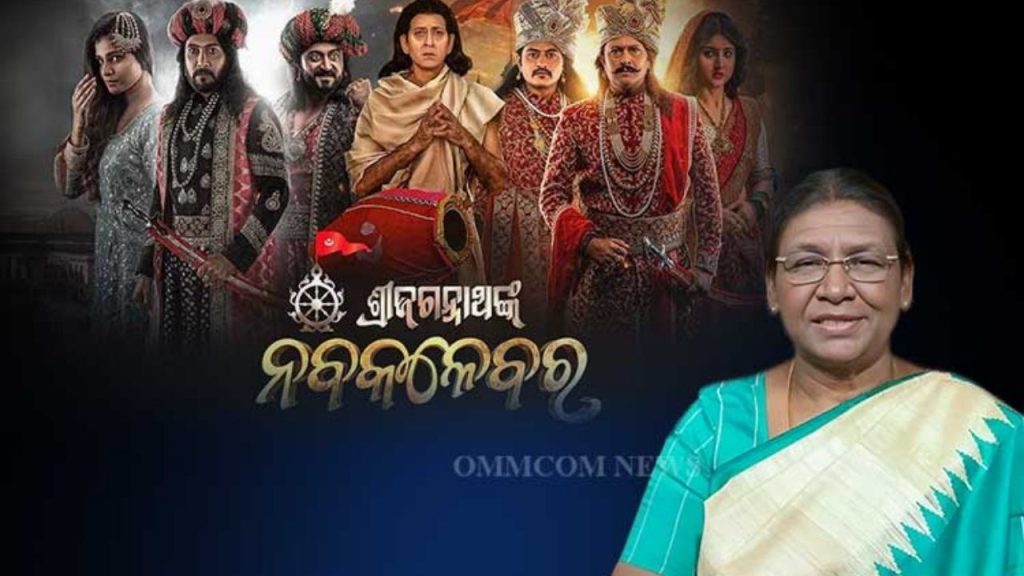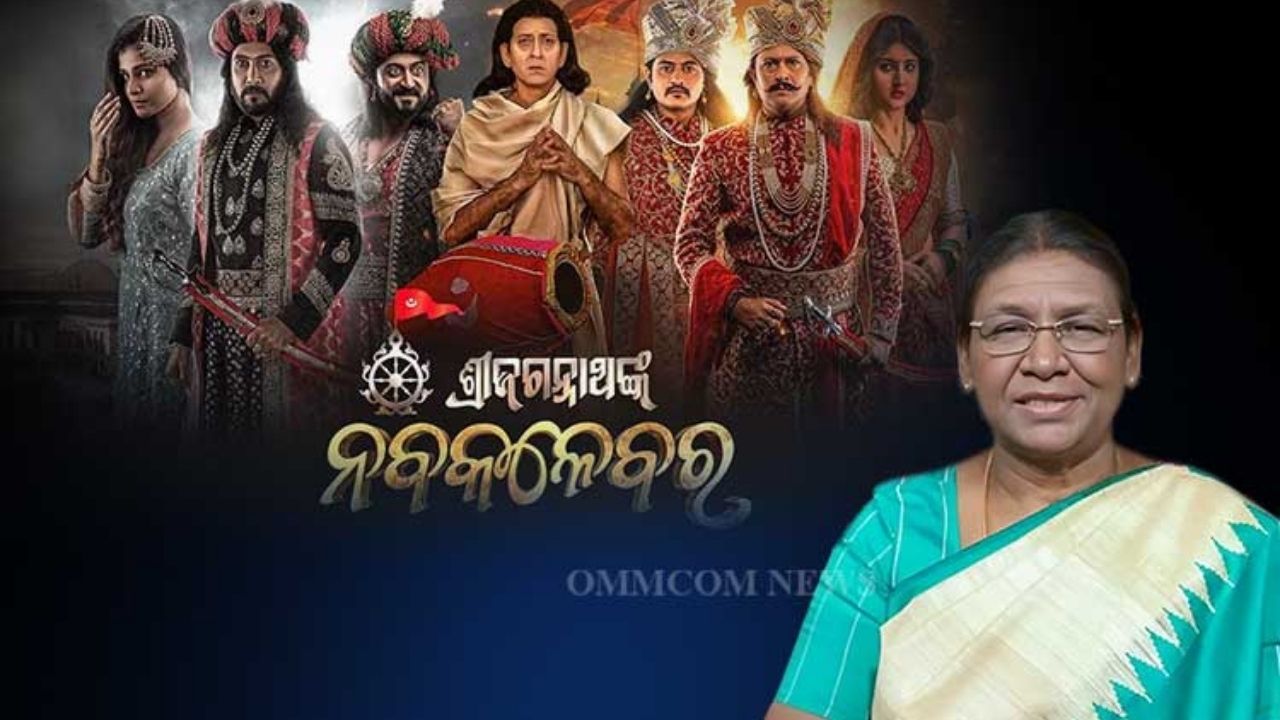When President Droupadi Murmu sat down recently to watch an Odia film titled Shri Jagannath Nka Nabakalebara, it wasn’t just a movie night—it was a moment of deep cultural recognition and national pride. The screening took place at the Rashtrapati Bhavan Cultural Centre, a fitting venue for a film that captures one of the most sacred and time-honored spiritual events in India’s Hindu traditions: the Nabakalebara ritual of Lord Jagannath.

This powerful moment reflects how ancient traditions can be beautifully preserved through regional cinema—and how national leaders are embracing that expression in full spirit.
President Droupadi Murmu Watches Odia Film
| Topic | Details |
|---|---|
| Event | Screening of Shri Jagannath Nka Nabakalebara |
| Venue | Rashtrapati Bhavan Cultural Centre, New Delhi |
| Date | July 18, 2025 |
| Guest of Honor | President Droupadi Murmu |
| Film Language | Odia |
| Director | Soubhagyalaxmi Jena |
| Theme | Ritual of Nabakalebara—rebirth of Lord Jagannath’s idols |
| Cultural Value | Promotes Odisha’s spiritual heritage |
| Official Source | All India Radio (newsonair.gov.in) |
President Droupadi Murmu’s decision to watch Shri Jagannath Nka Nabakalebara is more than symbolic—it’s a celebration of India’s spiritual diversity, an embrace of regional voices, and a call to preserve sacred traditions through powerful storytelling. This moment reminds us that when heritage is respected at the highest levels, it empowers communities across generations.
What Is Nabakalebara and Why It Matters
Let’s break it down. Nabakalebara means “new embodiment” in Sanskrit. It’s a rare ritual that takes place every 12 to 19 years at the Jagannath Temple in Puri, Odisha. During this time, the wooden idols of Lord Jagannath, Balabhadra, Subhadra, and Sudarshan are replaced with newly carved ones from sacred neem trees.
It’s not just a ritual—it’s a massive spiritual festival that draws millions of devotees. Think of it like a spiritual Super Bowl with the reverence of Easter Sunday.
“To witness Nabakalebara is to witness the rebirth of divinity,” says cultural historian Dr. Ramesh Pattnaik.
The Film: A Cinematic Pilgrimage
Directed by Soubhagyalaxmi Jena, Shri Jagannath Nka Nabakalebara isn’t your average documentary. It’s a devotional-epic film that takes you inside the secret rituals, ancient chants, and overwhelming faith surrounding the event.
It includes:
- Authentic visuals from inside temple rituals
- Interviews with temple priests (Daitapatis) and local historians
- Reenactments of Banajaga Yatra (the search for sacred trees)
- Emotional testimonies from devotees and pilgrims
President Murmu, herself from Odisha and a devout follower of tribal and Hindu traditions, praised the film’s artistic honesty and cultural depth. According to Rashtrapati Bhavan’s official statement, she was “deeply moved by the spiritual narrative and the dedication of the filmmakers.”
Cultural and Political Significance
Presidential Support = National Spotlight
By supporting this Odia-language film, President Murmu:
- Gave it national legitimacy
- Showed solidarity with tribal and regional cultures
- Encouraged younger generations to take pride in their roots
Spiritual Diplomacy
India’s soft power thrives on spiritual legacy. This film serves as a cultural ambassador, making ancient traditions accessible to people from all walks of life.
The Numbers Behind the Faith
- Over 3 million pilgrims attended the last Nabakalebara in 2015 (Source: Odisha Tourism Department)
- The event boosted Puri’s economy by more than ₹500 crores (approx. $60M) through tourism, hospitality, and local crafts
- Nearly 12,000 police personnel were deployed to manage the crowd
Why This Matters to You
For Educators & Students
Use this film to explain:
- The connection between religion and environmental stewardship (sacred trees are never cut without ritual)
- Rituals as tools for community bonding
For Professionals in Tourism or Government
Gain insight into:
- How to manage faith-based tourism
- Strategies for balancing economic development with cultural preservation
For Creatives & Filmmakers
This is your sign that regional stories have global impact. Audiences crave authenticity, and stories rooted in faith and heritage deliver just that.
Guide to Understanding Nabakalebara
1. Banajaga Yatra – Sacred journey by temple priests to locate the holy neem trees (called “Daru”)
2. Secret Rituals – Transfer of the divine “Brahma” (life force) from the old idols to the new
3. Carving of Idols – Sculpted by temple-designated artisans using centuries-old techniques
4. Burial of Old Idols – The old deities are buried in a sacred space called Koili Baikuntha
5. Installation Ceremony – New idols are dressed and formally worshipped before being paraded during the famous Rath Yatra
The Bigger Picture: Why Cultural Storytelling Matters
From Native American oral traditions to Eastern spiritual ceremonies, the thread that connects humanity is storytelling. This film brings to life the sacred rhythm of Nabakalebara and proves that cultural stories aren’t just memories—they’re living legacies. When the President of a country takes the time to engage with such stories, it’s a sign that culture is currency—and it’s one we should all invest in.
Odisha CM’s Helicopter Grounded by Lightning, Starts Road Journey to Mumbai for Repairs
FAQs
What does “Nabakalebara” mean?
It means “new body,” referring to the ceremonial replacement of wooden idols in the Jagannath Temple.
How often is the ritual performed?
Approximately every 12 to 19 years, based on lunar alignments.
Where can I watch the movie?
The film may be broadcast on national platforms such as Doordarshan or featured in cultural festivals. Monitor updates from DD India and newsonair.gov.in.
Why did the President watch it?
To support cultural preservation and shine a light on Odisha’s spiritual and artistic contributions to Indian heritage.





